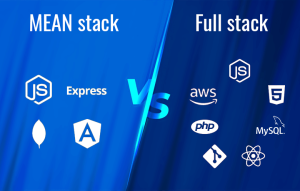Startups are the lifeblood of any industry. They provide the initial push needed to get things going. They are mostly the first ones to market with creative products that can alter the way we live our lives. However, when it comes to scaling these ideas into reality, it seems a bit difficult for startups. This is where product development comes in.
Product development is the process of creating a scalable version of your idea. It is the bridge between your startup and its eventual success. Innovation is what makes startups unique. When you have an idea, you need to make sure it is original enough to stand out from the crowd.
Every startup faces challenges and hurdles that it needs to prevail over. These problems may be different than those faced by other startups.
A few such challenges are
i. Lack of resources
ii. Time management
iii. Efficient customer support
iv. Business modelling
v. Product management
vi. Customer acquisition
In order to solve these issues, each startup develops its own solution. A full stack solution is a software application that integrates multiple data sources into a single platform. This enables users to access information from any system and database about their business operations to make better decisions.
Hiring a full stack web developer for startups is the need of the hour as they work on software development, hardware engineering and product design in a single project. It can be applied to any industry. This approach allows for the creation of a complete end-to-end solution from start to finish.
This kind of development caters to all the needs of your project, including design, coding, testing and deploying. The developers take care of both front-end and back-end development as well as how all the pieces work together. It not only speeds up the development process, but also helps startups save time and cost.
How full stack development can help startups
Full stack development is a term used to describe the use of different technologies that are combined to build software applications. This combination of technologies allows startups to create applications that are much easier to maintain and scale than those created using traditional methods. It helps startups get their product off the ground quickly. Since this sort of development process allows developers to work on both front-end and back-end codes at the same time, startups can build a product from scratch without having to worry about how the UI looks or if their back-end API works.
Let’s look at the role of developers and compare it with others involved in the development of a project
| Full stack developers | They are responsible for building the front-end of your application. They are responsible for designing the user interface, writing code that makes sense and ensuring that the app works across multiple platforms. |
| Back-end developers | They write the back-end logic of your application. This includes things like connecting to databases, creating APIs and managing data flow. |
| Front-end developers | They make sure the UI looks good and functions well. |
| UX designers | They ensure that the user experience is great. |
| Product managers | They make decisions about what features should be included in the product and how they should work together. |
| Project managers | They coordinate and make sure that everyone is involved in the project and keep them focused on their tasks. |
Now that we have an idea of the role of developers and others involved in the development of a project, let’s go through a few benefits of full stack development for startups
1. Faster time to market
The biggest benefit of this development technique for startups is that it allows developers to work faster which results in faster development of projects for startups. Since full stack developers focus on their primary skillset, they integrate other aspects of the project into their workflow with ease. Moreover, developing your application from scratch allows you to get things done faster. This helps startups to develop features without having to wait for other people to implement them.
2. Better quality
Another benefit is better quality. By integrating multiple components of the application into one workflow, the chances of bugs occurring in any particular area are greatly reduced. As a result, the overall quality of the product is enhanced.
3. Increase in productivity
This development method helps to increase productivity. Since a single person is responsible for developing the entire application, they can focus on what they do best – writing code. This frees them up to spend more time working on the actual product rather than trying to figure out how to make it look good. This again leads to the speedy development of a project.
4. More flexibility
Another great advantage is its flexibility. By using different technologies, a single programmer can build a solution that works well on desktop computers, tablets, smartphones and even smart TVs for startups. So, you don’t need to hire multiple developers for your project. And if your startup needs to launch a new feature on social media platforms like Facebook, Instagram, Twitter, Pinterest, or YouTube, you can simply add those features to your app.
5. Smart development
Here, the developers work on all aspects of a website or application, from design to development and everything in between. This means that they have a deep understanding of how the different parts work together and can solve problems quickly and efficiently. In a startup environment, where time is often of the essence, such development processes can help with not only the initial build-out of a product, but also be relied on to make quick changes.
6. Cost-saving
One of the main benefits is cost savings. Startups have a propensity for tight budgets and even tighter timelines. Full stack development helps to modernize this by catering to multiple development needs of a project. In short, developers can also take on the role of a tester and operations specialist simultaneously when you choose full stack development for your project.
This allows startups to avoid the need to hire (and train) separate specialists, saving time and money in the process. Additionally, by having a single point of contact for all product development needs, communication and collaboration are streamlined, leading to efficient development and cost savings.
7. Ownership
When startups hire full stack developers, they take complete ownership of the project from start to finish. Whether it is a presentation or development, everything is managed in-house. It speeds up the development process and the outcome is achieved quickly. This directly leads to lesser investment and results in greater ROIs for small businesses.
For any startup providing web or mobile app development services, a team of full stack developers can move from task to task and utilize the best available software and tools for specific tasks or critical functionality without incurring extra costs.
The delivery time is much less, no hiccups during the development process and product deployment is easier. The major benefit is ease in handling changing requirements.
Conclusion
Full stack development is important for startups because it provides a complete and well-rounded view of the company’s systems. This allows startups to save time and money while also increasing efficiency. In order to create a successful startup, it’s important to have a team that can work well together and has a broad range of skills. By having a team of developers with a range of skills, you can quickly and easily build the products and features that you need to take your business to the next level. If you’re interested in learning more about full stack development, be sure to check out our website.








